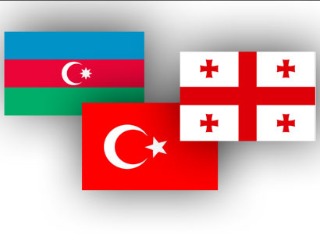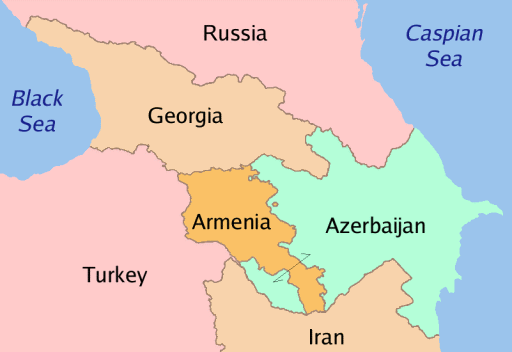Turkey-Georgia-Azerbaijan: Trilateralism and the Future of Black Sea Regional Geopolitics
By Michael Hikari Cecire (the 16/10/2013 issue of the CACI Analyst)
Though one of the quieter subplots in Black Sea geopolitics, the emergence of an increasingly cohesive trilateral grouping between Turkey, Georgia, and Azerbaijan is reconfiguring the regional balance of power. This entente was officiated in the 2012 tripartite Trabzon Declaration, but is rooted in growing economic and strategic interdependencies. While the grouping remains vulnerable to both pressure from Moscow and internal challenges, this trilateral entente has the potential to be the prevailing player in the South Caucasus if it maintains its upwards trajectory, and its interests largely overlap with those of the West.

Polls Reveal Georgian Dream Candidate in Lead Ahead of Presidential Election
By Archil Zhorzholiani (the 16/10/2013 issue of the CACI Analyst)
The presidential candidates nominated by “qualified political parties” will participate in TV debates at the Georgian Public Broadcaster (GPB) on October 17-18. Georgia's election code grants such status only to political forces which have won at least 4 percent of the vote by running either independently or along with other parties in the most recent parliamentary elections and gained at least 3 percent of the vote in the latest local elections.
“CACI Analyst, October 2, 2013”
Russia's Principled Caucasus Policy
Stephen Blank (the 02/10/2013 issue of the CACI Analyst)
Five years after its war with Georgia, Russia is now moving to institutionalize its gains into enduring territorial-political structures. During September 2013, Moscow effectively blackmailed Armenia into joining the Eurasian Union and has now announced that it is going to sign a treaty with South Ossetia and Abkhazia, recognizing the “international borders” between them and Russia. As a result, Russian soldiers are now erecting fences effectively demarcating these territories from Georgia, if not formally annexing them to Russia. Both of these moves undermine the sovereignty, and in Georgia’s case the integrity, of these two South Caucasian states and demonstrate that Russia’s neo-imperial effort to create a closed bloc in the CIS is intensifying and accelerating.

Russia Continues Border Demarcation in South Ossetia
Archil Zhorzholiani (the 02/10/2013 issue of the CACI Analyst)
In mid-September, the Russian troops restored the installation of fences or the so called “borderization” process along the South Ossetia administrative boundary line (ABL) in the vicinity of the villages Ditsi and Khurvaleti.


